HOW TO LEARN THE QURAN IN ENGLISH?
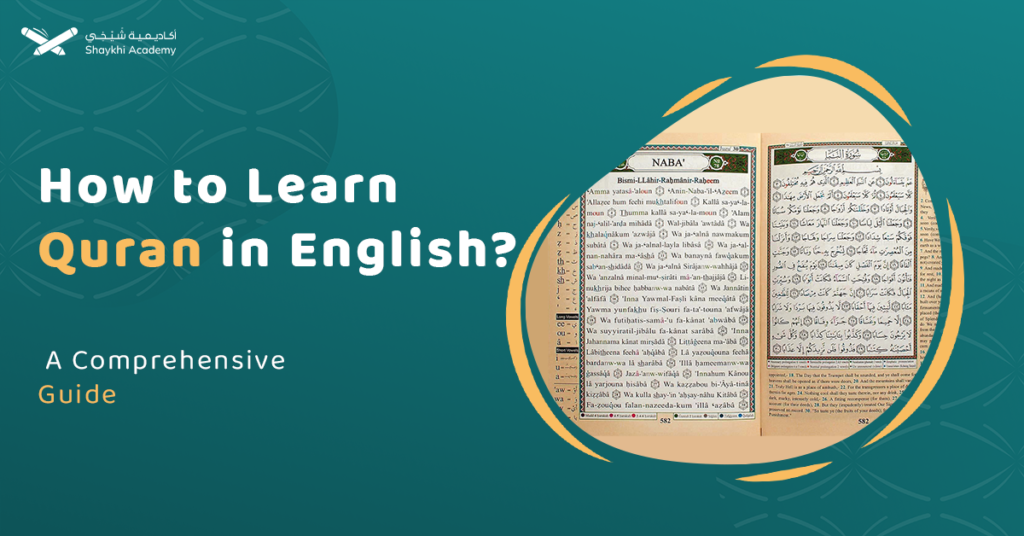
For non-Arab Muslims who haven’t studied Arabic, reading the Quran in its original language can be a significant challenge. While reading translations of the Holy Quran helps bring the meanings closer to their understanding, something is inevitably lost when it’s read in a language other than Arabic. So, how can this challenge be overcome? This […]
Sunnah Fasting Days In Islam: Voluntary Fasting Guide

Sunnah fasting—voluntary fasts outside Ramadan—offers immense spiritual rewards. Observing fasts on specific days like Mondays, Thursdays, the “white days” (13th, 14th, 15th of each Hijri month), Shawwal, Ashura, and Arafah brings blessings, forgiveness, and closeness to Allah, enriching the soul beyond Ramadan. We will explain these days in this article. So, let’s explore them together. […]
Explained: The Best Of You Are Those Who Learn the Quran And Teach It

Allah (subhanahu wa ta’ala) describes the Holy Quran as His divine inspiration and as a light. In Surah Ash-Shuraa, He says: “And thus We have revealed to you an inspiration of Our command. You did not know what is the Book or [what is] faith, but We have made it a light by which We […]
How To Learn Qirat Of The Quran?
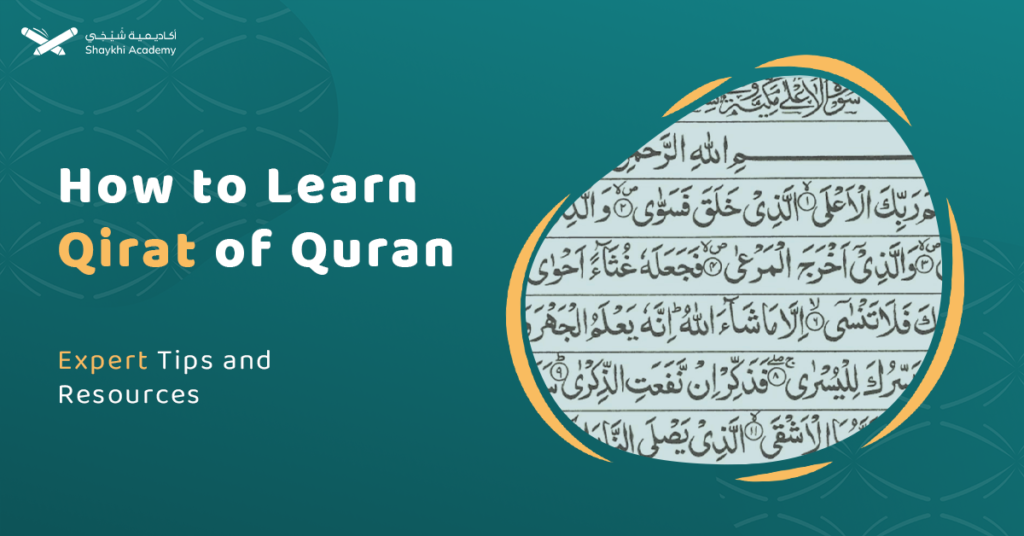
Learning Qirat is significant for understanding the Quran’s depth and nuances, as different recitations can offer varied meanings and interpretations. The process typically involves mastering one’s initial Qira’ah, studying the Matn of Shatibiyyah for foundational rules, and seeking guidance from qualified teachers to ensure proper recitation and application of Tajweed rules. Every Muslim knows that […]
Tajweed, Tarteel, And Tafser: Full Guide With The Differences
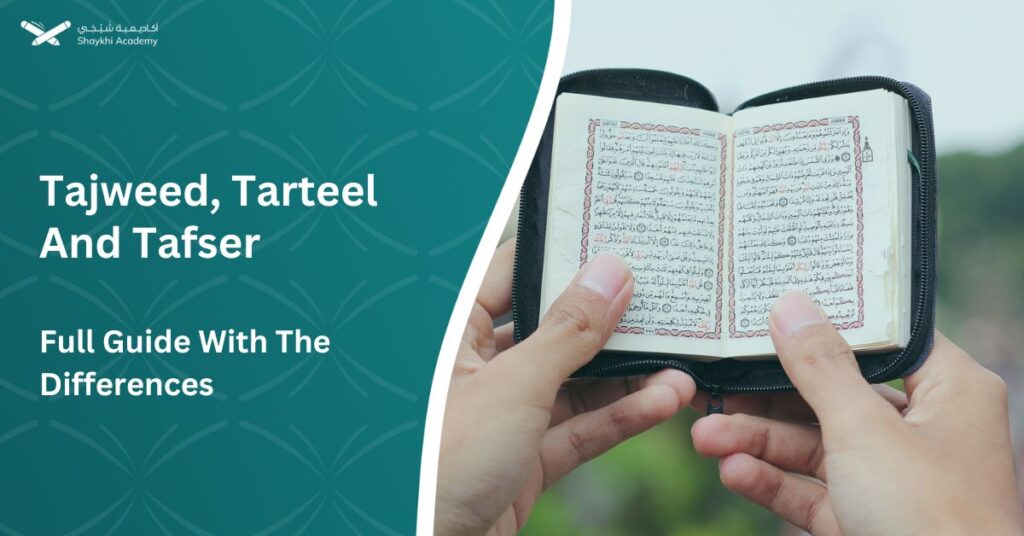
During your journey of learning the Quran, you will encounter some expressions that refer to specific concepts. It’s important to understand these terms to differentiate between them. In this article, we will explain the main differences between three key terms: Tajweed, Tafseer, and Tarteel. Let’s begin. Differences between Tajweed, Tafseer, and Tarteel The mean difference […]
Quran Tajweed Hafs Rules: Top 3 Unique Rules In Hafs Tajweed

In the rich tradition of Quranic recitation, Hafs ‘an Asim stands out among the ten recognized styles, widely practiced and cherished globally. This article delves into the unique rules of Hafs recitation, focusing on its distinct Tajweed principles that shape its clarity and fluency. We’ll explore key rules, such as Al-Basmalah, Madd, and Qalqalah, highlighting […]
Tajweed Warsh: Top 4 Main Unique Tajweed Rules in Warsh With Examples

In Tajweed Warsh, recitations start with Al-Basmalah except for Surah Al-Tawba, using various transitions between surahs. Connected and Disconnected Madd, and the word “أنا” when followed by a hamza with a fatha or dammah, are elongated for six counts. Plural “mim” elongates similarly when followed by hamza al-qata. In this article, we will explain some […]
Madd Tamkeen Rules With Examples
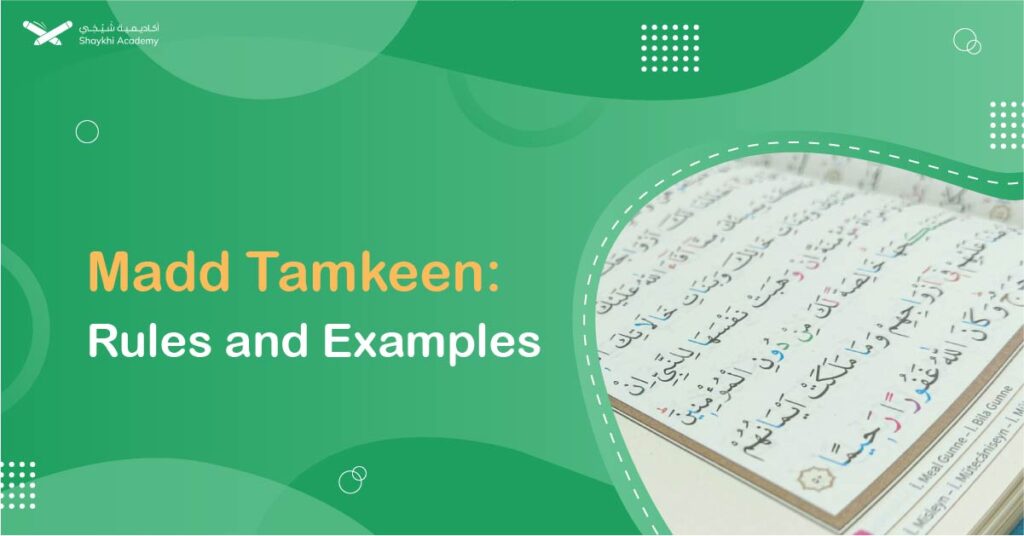
Madd Tamkeen in Quranic recitation ensures precise pronunciation of elongated letters like waw and yaa, maintaining clarity by avoiding their merger and emphasizing distinct pronunciation with a two-count duration. Mastering Madd Tamkeen is crucial for accurately reciting Quranic verses, enhancing both fluency and understanding of the sacred text. Introduction to Madd: As we know, there […]
Madd Lazim Explained With Types (Harfi, Kalimi Muthaqal, And Kalimi Mukhaffaf)
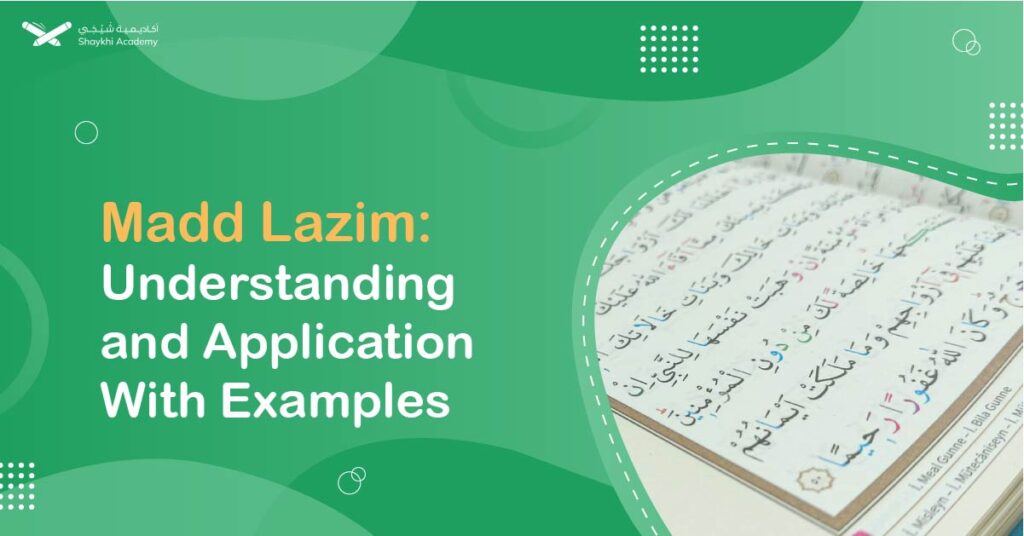
Madd Lazim, a secondary type of Madd in Tajweed, occurs when a letter of Madd is followed by a consonant with a permanent Sukoon. This type of elongation is essential for accurate Quranic recitation, preserving the text’s original pronunciation and preventing misinterpretations. Madd Lazim is applied with six counts and is classified into Madd Lazim […]
Is it necessary to learn Arabic to be a Muslim?
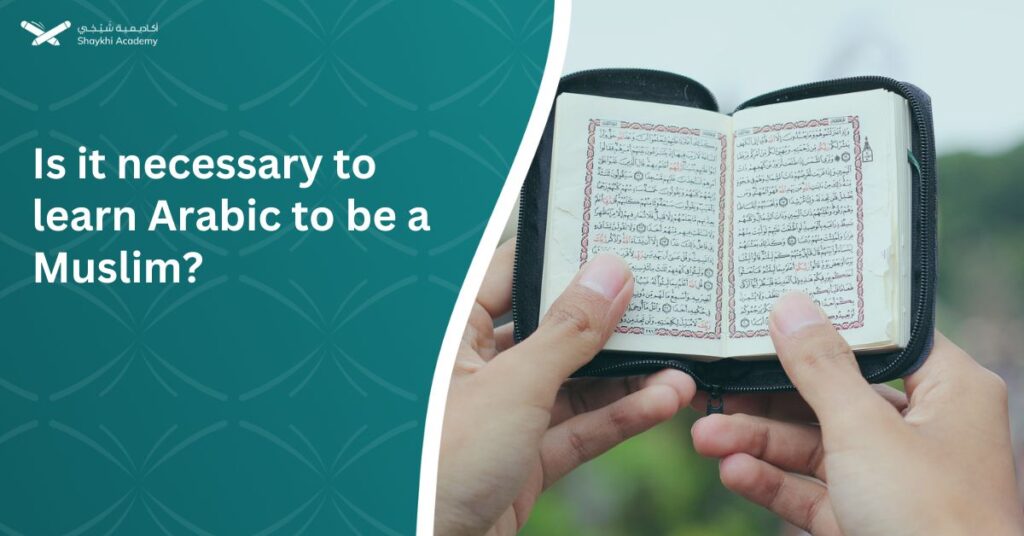
The Arabic language takes the honor as it is the language of the Holy Quran, the language of the prophet Mohammed peace be upon him, and of course, it is the language that Muslims must speak during praying and reciting Quran. But, is it necessary to learn Arabic to be a Muslim? Let’s discuss this […]
Al-Madd Al-Aarid Lissukoon العارض للسكون With Examples
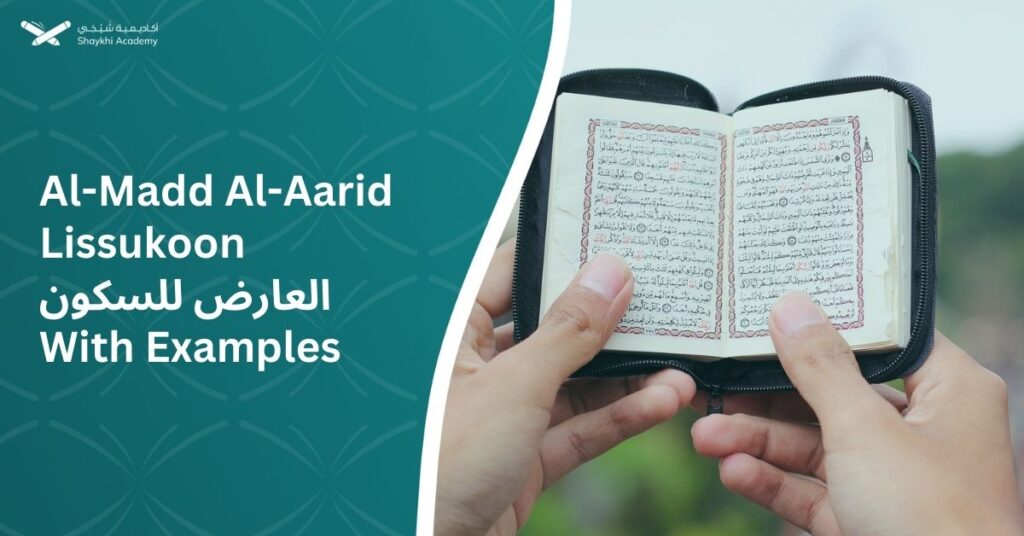
In the Quran, there are two types of Madd: Madd Asli (Original Madd) and Madd Faree (Secondary Madd). Madd Faree is divided into two types: Madd Faree due to hamza and Madd Faree due to sukoon. Madd Faree due to sukoon is further divided into two types: temporary sukoon (Al-Madd Al-Aarid Lissukoon and Madd Al […]
